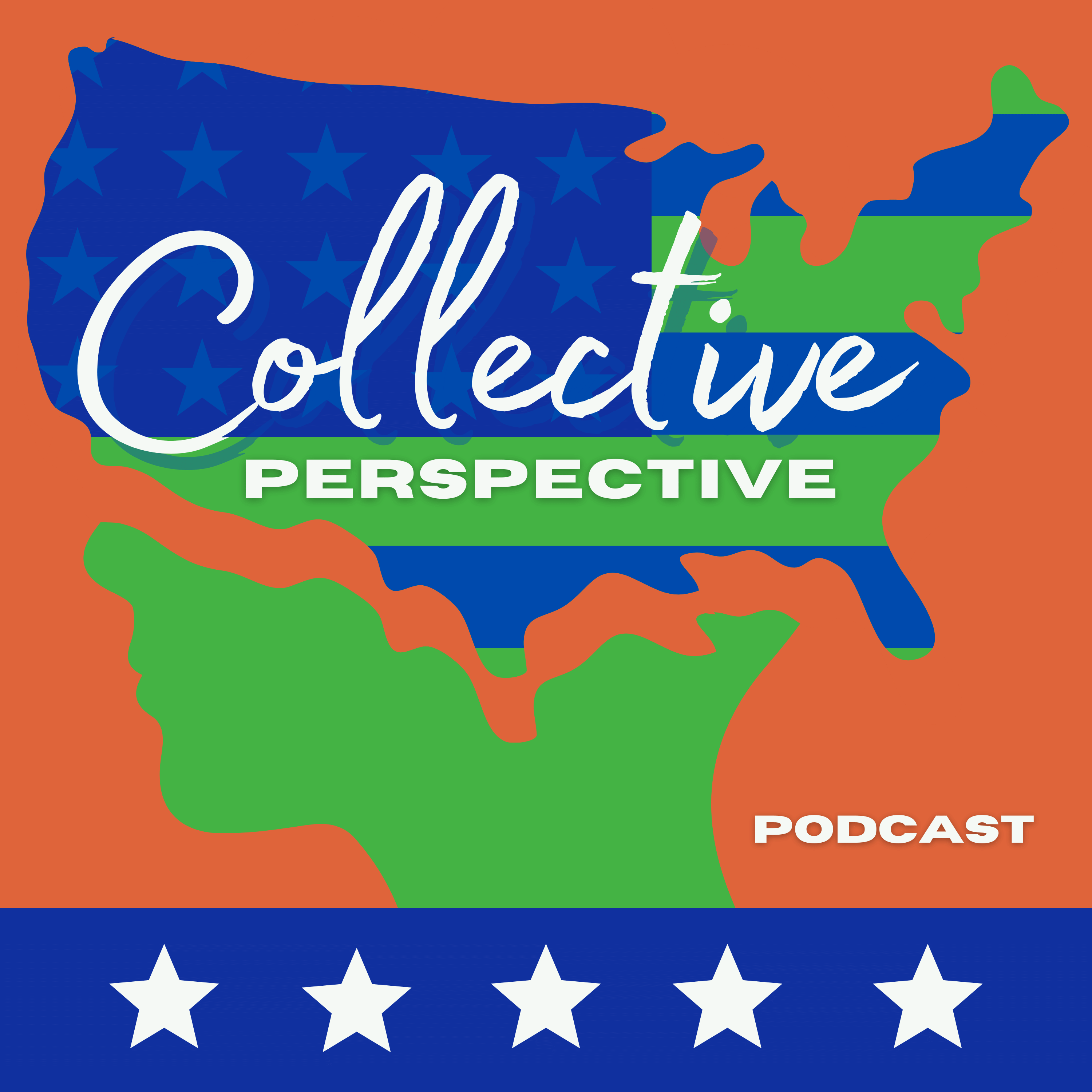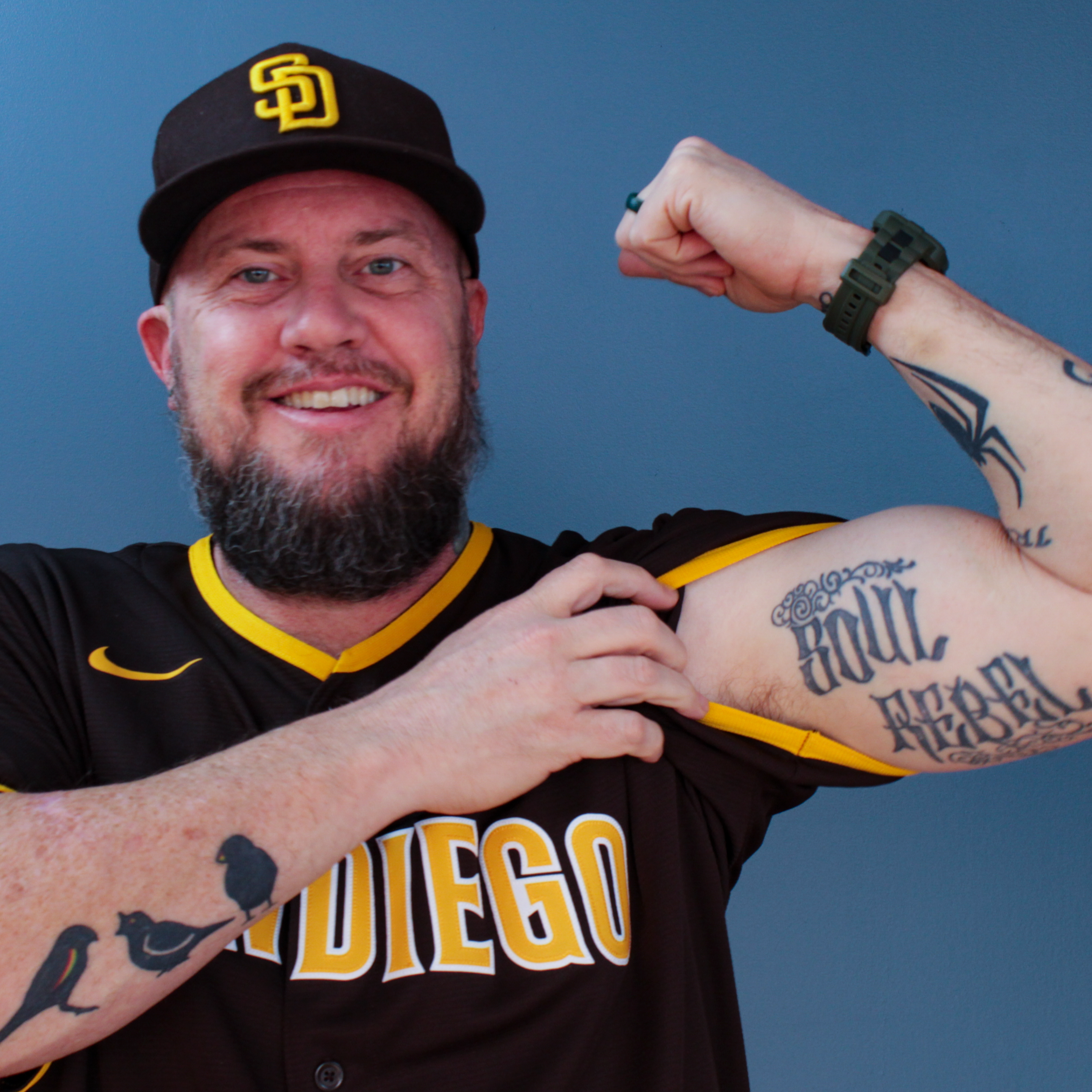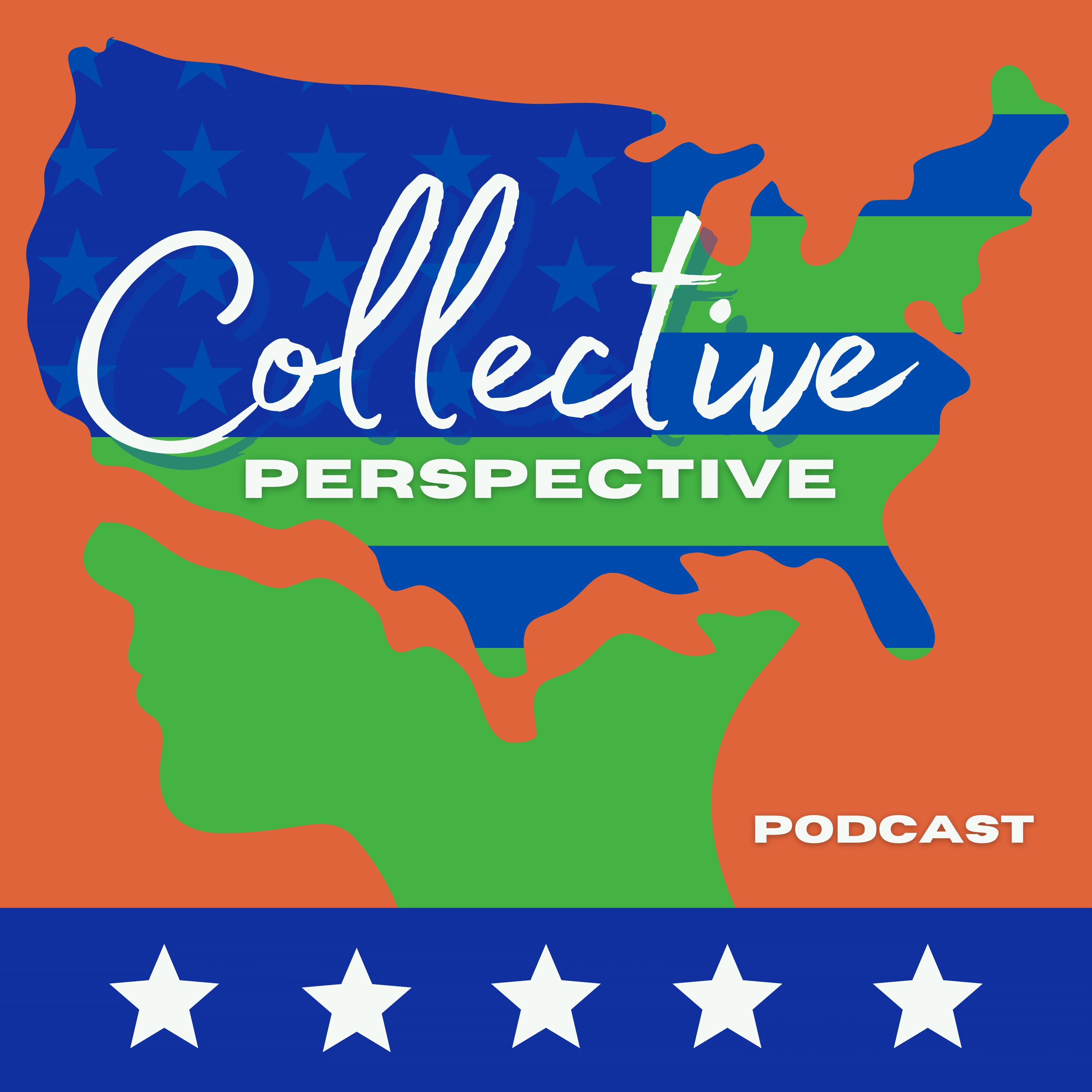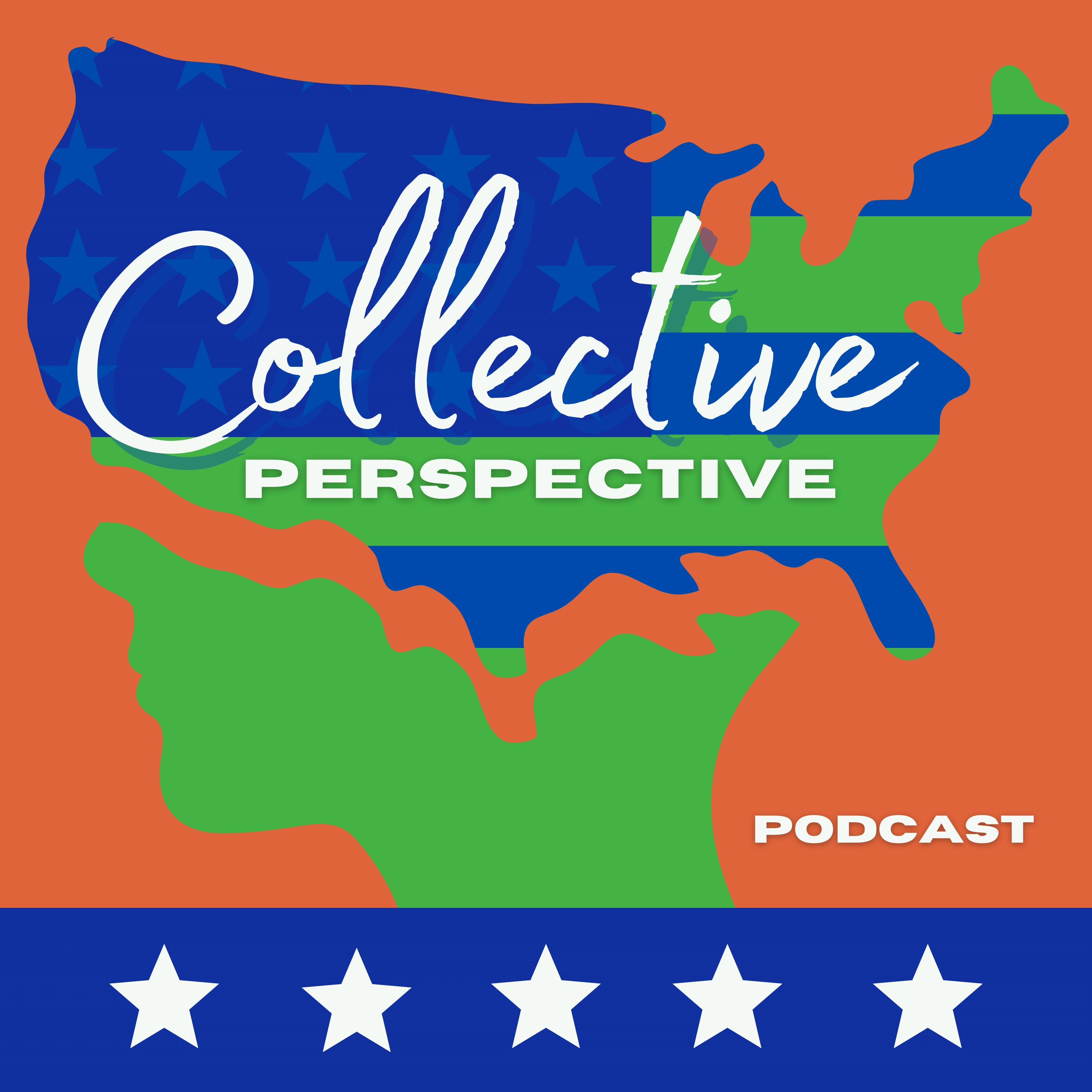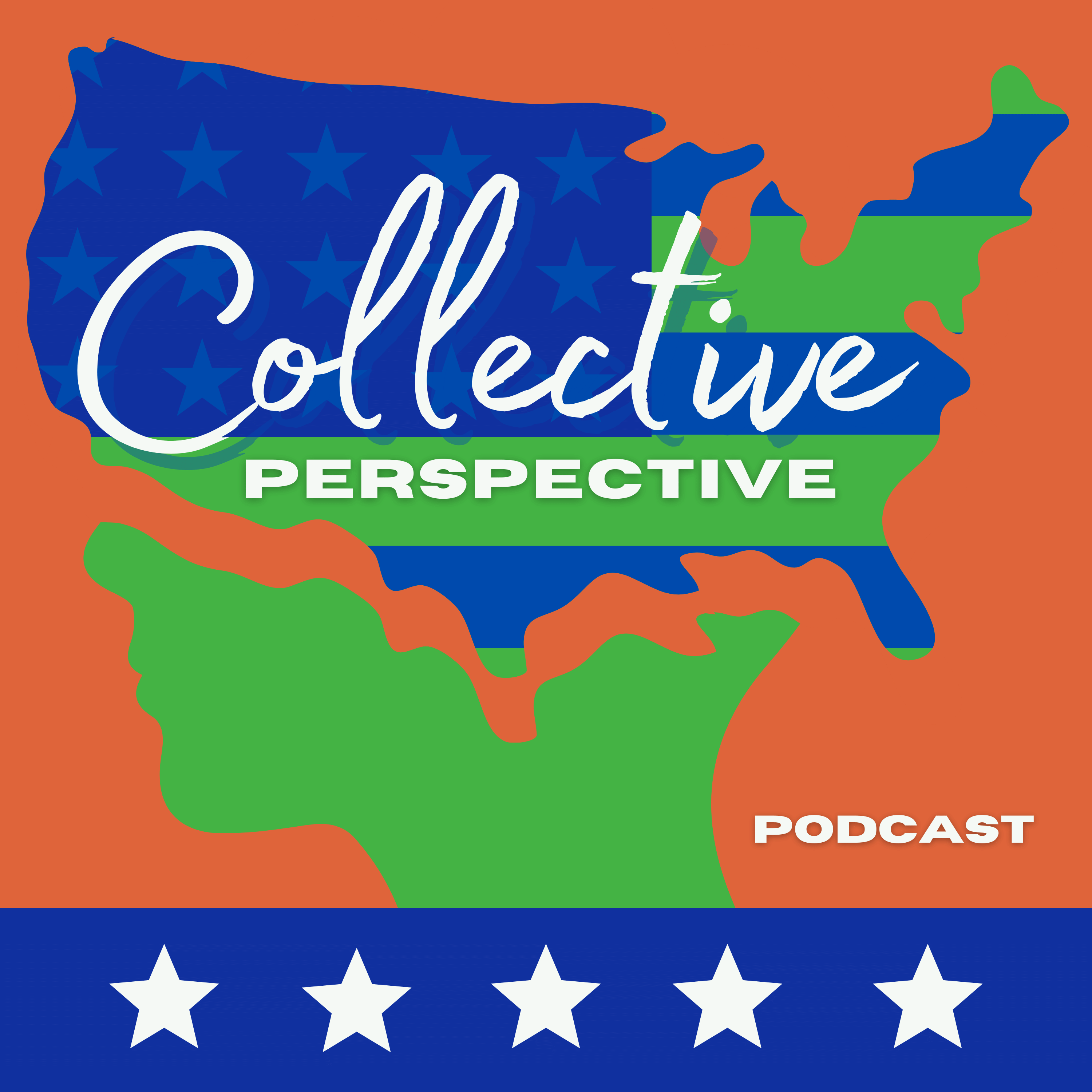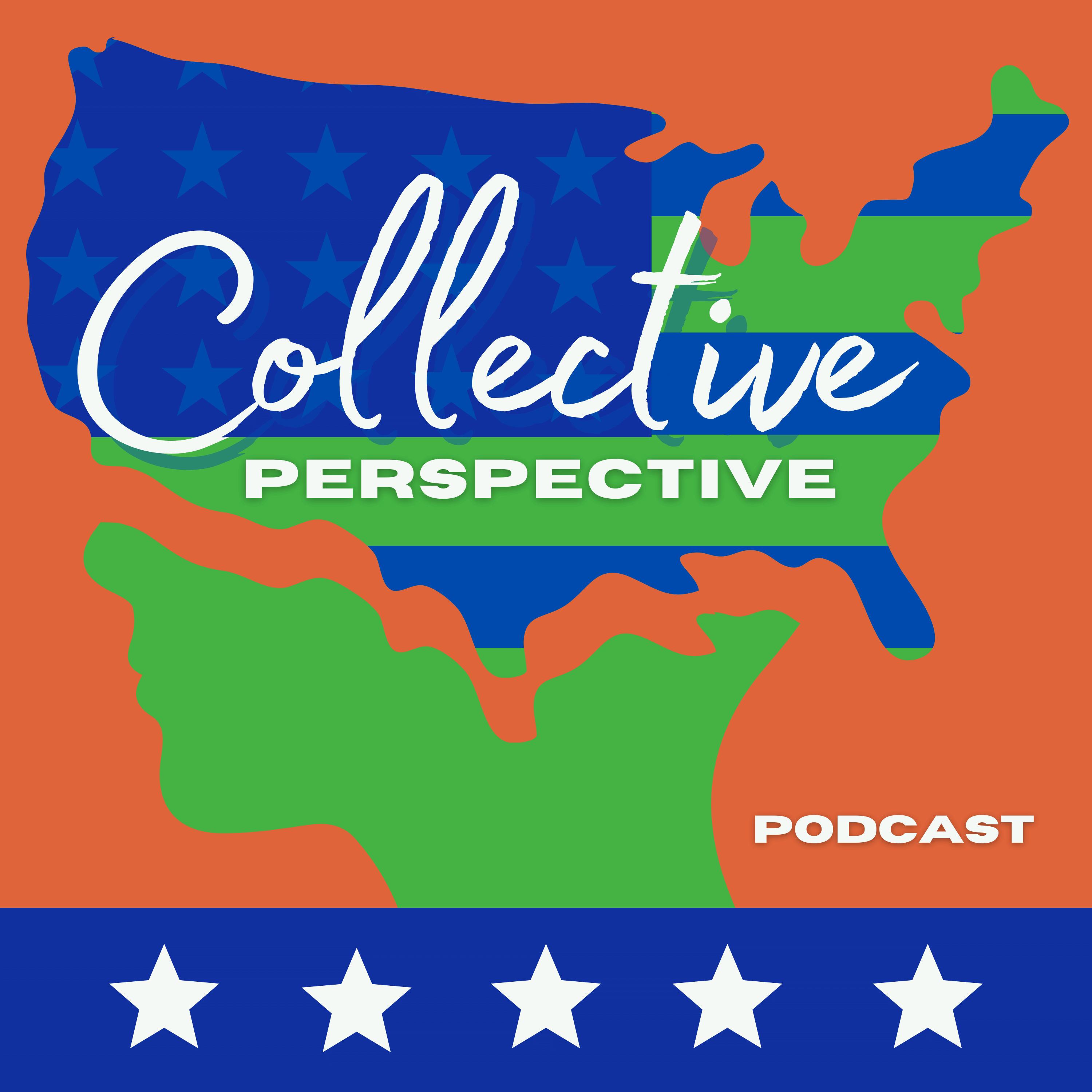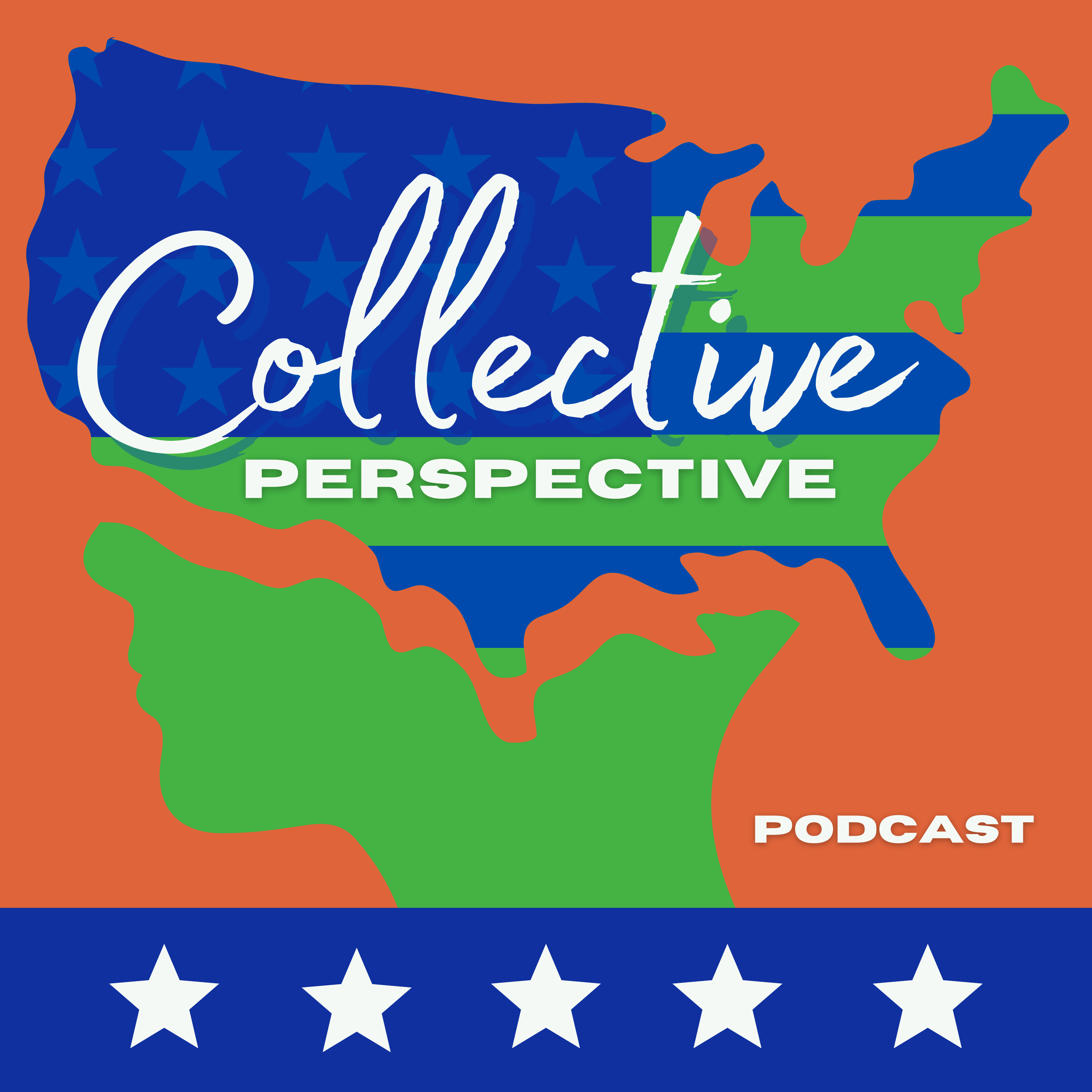Episode Transcript
This isn't just a podcast, it's a reminder. A reminder of what makes America Stronger isn't a headline or a hashtag. It's people from the ones building our homes to the ones rebuilding their lives, veterans, tradesmen, neighbors and volunteers, real people doing real things. Here we find common ground first, and then we work on our differences.
This is the collective perspective podcast where purpose, people, and progress mean.
Here's an example. Some people might've got upset, obviously, why would get upset at something stupid. But, um, you were kind of gentle in the way that you were saying, Hey, I'm not quite sure. You know, you weren't jumping to conclusion like, I don't know anything about gentleness. You know what I mean? I don't wanna talk about it.
Right? So, um, that's a perfect just. The little thing about being gentle now that, I'm almost thinking that that could be passive as well, not just, not gentle, but passive. Not in, in an, obviously the, the, the passive aggressive way, but just being passive in like, eh, I'll, I'll do whatever. That's not being gentle.
That's, that's being, it's called choosing your own battles. It can be. Yeah. Right. I, I think choosing your own battles could be a form of gentleness. 'cause you have to, you have to really decide, is it really something I'm worth arguing about? Whether I'm, I want to put all this energy, do, am I really right or am I just living in my own perspective?
Yeah. I, I, I think, uh, hang on just a second. You getting a message? Yeah.
All right. It's not the message. I thought it was.
I thought it was something else. Um, man. Gentle. Um, so what do you mean by being passive? By being passive is, is not offering enough input or a lot of input, uh, and taking the lead of someone else, letting them lead the way. And you make maybe some recommendations along the way, but you're not, you're not maybe as all in as, as, uh, strong or as a, as a leader as you.
Think you are.
I mean, sometimes I, I, I do feel like I'm just, uh, along for the ride and it, it almost feels like it's, uh, not, I am not gonna say not beneficial because it is a, a, a good, uh, give and take that we have.
Uh, I, I, I, but gentleness is, isn't submission, it's, um, or silence. Submissive or, okay. Yeah. It's not submissive or silent. Um, it's a strength on purpose. Okay. So where you may come out a, again, like if you are having a conversation with your people that work. Mm. You said it in the last episode, you don't know what that other person's going through and gentleness is knowing that, hey, maybe I just need to be quiet this time.
Don't poke, don't inflame the situation. Just take a step back and let them vent. Yeah. So if somebody like cuts you off or is driving erratically on the road as much as it, or posts something on Facebook that you don't like. You know, it's completely normal to think, you know what I'm gonna get at this person and I'm gonna poke back at 'em.
But the true gentleness and true kindness, um, is just not saying anything at all. And just letting it pass and knowing that, like this argument on Facebook is not gonna get me anywhere but. Being upset and here I am, this person's living in my head back to the last episode again. You know? Um, so I can choose to be gentle though.
Okay. I, I see, I see that. And I, I do agree that that is a different type of gentleness, not something that I was expecting or something that I, I was, uh, really in the mindset of when, when we first broached this, this subject or topic. So some good examples that I heard, uh, recently about gentleness is. The wind, for example, a nice cool breeze on a summer night cools us down and is gentle on us, and it's gentle on our skin and everything on earth.
But come August, September and that hurricanes coming, that wind will kill everything and destroy everything in its sight and it has no mercy. Of course, living here in Jacksonville, that's not really. You kind of almost want to see it be un gentle. It's kind of weird, right? And then when something doesn't happen, you're like, okay, that's cool.
But like, I really wanted to see something go down. Right? Am I wrong? No. I, I, I, I don't think you're wrong on that. Yeah, we do wanna, that's no hurricane
cat three what? Tropical depression. That's about it. No, but you know, being gentle, I, I, I feel is more, yeah, it is an emotional thing that you do with your loved ones or with people in general who you interact with. You, you don't need to be that abrasive or be that abrupt with people. You can slow down and say, Hey, look, let's, let's, let's talk it through.
Work it out, where are we with this? And, and try to move it forward that way. Diffuse a, a tense situation by being gentle. Were you thinking that I felt gentle was more of a physical thing than a mental thing. No, I, that, that was just in, in my head how I was seeing it. Do you think you're not gentle? I think my outward Are you rough around the edges, Travis?
My, my outward personality. I know you're not, I'm just joking. I think is is gentle. Yeah. But in private or in my head, I'm just going through everything else. Or on x. Uh, that's joking. Uh, how, how is that, so how are you not, how are you not gentle in that respect, if you don't mind sharing? Well, sometimes I think I have, um, knee jerk reactions like everybody else would to.
Uh, a surprising situation. Uh, and my, you know, I've seen a lot of bad things happen to people and I've seen death. I've seen a lot of things, and you have a dark sense of humor, and sometimes that darkness could sound very callous and cold and not the right thing to do, but you know, you have the right temperament and the right, uh, mindset.
You don't just let those things blurt out. You take a step back. And then in private, you know, away from the situation, you'll go or I'll go and make some inappropriate jokes, I guess. But, you know, depending on the situation, that's kind of part of the release of the tension of the situation. It is really dependent on how bad it is.
'cause, you know, I could, I could say at, you know, at work, you know, I, I deal with a lot of families. And pardon me, I've had, uh, this was when I first started in this place, there was, uh, a family that didn't get along with each other and there was a lot of, uh, bickering, arguing, uh, blaming each other for certain things.
And it would get loud and very disruptive to the whole unit, to the wellbeing of, you know, my workplace, not just for the staff, but also for other residents that are there. Uh, so, you know, going into those situations and it's like, all right, well how do you, how do you diffuse this situation? You offer them, you know, certain.
Choices. There's no choice. None of the choices are to continue this current path. One is, you, you must leave this building now or I will have you escorted out. Those are the only choice, uh, or, or you will put aside your differences and remain calm during your visit with, with your loved one or whatever it is, uh, or whoever it is.
And. You know, sometimes it's hard to stay gentle because energies like to meet energies and when the, when the um, situation is tense, it affects everyone. You feel it, the adrenaline starts to build up and it's, it gets really, um, you get really heightened senses and then. When you're able to finally, uh, calm the situation down, you get an adrenaline dump and it's like, whoa.
Uh, you know, how, how was I, was I overbearing in that to get that situation to calm down? You know, I always have second thoughts on that stuff, but no, uh, you know, I, I've, I've spoken clearly to them. I've maintained a. Mostly normal level of volume. I didn't get loud. I got louder and maybe more stern and like the dad voice come out and, you know, I, I think many of our, what's your dad voice sound like?
The dad voices when you're being stern, like when you're telling No, you're hearing your example. Eh, i I I can't just, why not throw it out there? Uh, why not? It's, it, it's a secret. Yeah. Um, it's like a secret recipe. It's one of them things that, you know, anybody can hear the dad voice. You don't wanna embarrass yourself like that.
No, it's not, it's not that. It's that when, when you get it is a different tone. And inflection. Look, I told you. Like that. Similar to that. Yeah. Okay. That's, that's something like that. I wasn't afraid to use my dad voice. Look man, I told you not to do that. Yeah. And it's different than your normal voice when you're just talking, but you're, you're still being gentle but firm.
But I can get my daughter to cry on the drop of just going, I told you. And she'll cry. Oh, that's a little bit, it might not being gentle. Uh, that, that sounds a little more aggressive than I think sometimes I can float like a butterfly, but sting like a bee. No, I, I, I think sometimes some, it, it's all in the del it's all in the delivery.
You know, when you, when you said you could make her cry with, I told you, there you go. Got your dad voice. You're getting, uh, you're getting too high pitched. Did that sound familiar, Logan? No. Okay. Uh, you get a little too high pitched and it is, it invokes a little more fear. I get a little more gut in it, man.
It's over.
Get the growl like a bear, right? No, it's, it's more of a, you, you kind of lower the voice a little bit. I told you, you need to stop doing what you're doing. You get, oh man, there was a dead voice. You get, you get firm with it, but it's not, that was good, man. You're not yelling. I like your dad voice.
You think I'm joking, but I like it.
What else is there to talk about? Gentleness? Um, how, how, because a lot of, a lot of what we talk about is how these things can be utilized outside of the home and inside the home, but it's more, it, it feels like we're talking more about how people should interact with each other on the daily. I think you gave a good example of how, how it's difficult to not be gentle
in your situation at work. It was difficult for you not to be gentle. There was points where it seemed like you had to step out of that because they were taken advantage of you being gentle. And then you had, uh, you had even, I was listening to you, but I was No, I know you was. That's, I hope everybody else is listening.
Please, like and subscribe. This is, uh, more off the cuff. Um, no. There are times when you have to, I think you do have to meet energy, but it doesn't have to be an abrasive energy. You can still bring it together and, and maintain order.
In a structured setting,
do you know what C clap back is? Unintended consequences. The cultural glorification of clap back is when responding in kind often costs us clarification, connection, and influence. And that's clap back. Yeah. Apparently. That, you know, clap back sounds like an unintended consequence. Like that. Lemme see what clap back means.
Collateral damage. Who uses that word? Apparently we do on the podcast. No, it's, it's, uh, no, it's, it's that knee jerk reaction. Someone says, you go what? Dead. I mean, that's, that's like a, oh, wow. Is, is that, is that, yeah. I don't think we'll use that. A clap back is a sharp, witty, or cutting response of criticism or an insult.
Yeah, kinda like what you say. An insult. We'll have to bleep you out though. All right. Sorry. Didn't mean to, didn't mean to go down the, uh, the, that, that road, man. Just, just beep about it. Just give it, we'll bleep that out too. It'd be fun, man. You wanna say another word? We'll bleep out. No, you got that dolphin sound.
No, it was just
so, it's targeted comeback that aims to put someone in check. Oh man, how many? That's Facebook right there. Uh, roasting somebody. You should be like, Hey, don't clap back me. And they'd be like, huh? What's clap back? Look it up. You didn't think it was a word, did you? No, I, I, I knew it was a word. I've heard it before.
You didn't know what, what the def I wasn't sure what the definition was. Look it up on an urban dictionary. I am in slings. Slap back or clap back means a sharp, quick, effective response to criticism or insult. Often used to put someone in their place. It's more intense version of comeback, witty, and intended.
You want a breakdown? Just kidding. No, I think, uh, a lot of comedians use that, especially when they're being heckled the clap back, kind of just go back and say something witty to 'em about whatever they said or they're wearing or who they're there with or whatnot. But it, it, it has, its. It usually results in its intended, um, re uh, you know, result, the person is quiet and they don't pipe up again.
I would say that you aren't being gentle if you're clapping back. No. Maybe you have the clap.
They hope you don't. Seeing now, that's just the standard. When we talk about stuff like that, my thing goes, oh, you know how it got called? The clap. Tell us. Uh,
as an std, I think people wanna know as an td. Yeah. Uh, you know, um, you get the, the drippy bits out of the, the, the little bits down below and to get it out, to clean it out, they would use a book or hands. Oh my gosh. And clap it. Expel everything inside the, uh, urethra, if you will. That hurt. That's why it's called the clap.
Do you know why? Uh, do you know why they called? This is going the wrong way. Did not need to hear all that. Yeah. Well, it's interesting. Yeah, well, that's why SHIT means shift in high transit.
Yeah, back in the day when they were shipping feces or people were on trains for a long amount of time, if you put the tank underneath, all the fumes would rise. If you put it up top, then it would just dissipate. So that's why a shift in high transit shift high in transit. Interesting. You were just, you were just, um, gentle practicing, being gentle without any clap back.
Interesting. Wow. The things we learn on this podcast, we hope you're listening and we hope that you're listening and, uh, learning and wanting to participate. Who knows, maybe the algorithm will catch up one day. I find that a lot of things that we've talked about that just now started to talk about.
Really? Yeah. Like surveillance, capitalism. Yeah. We talked about that. What, a year ago? Two years ago. Two years ago, yeah. Yeah. Surveillance, capitalism. Um, we were before our time. I think maybe we're, we're on the cusp. We're, we're too, we're too innovative. So how do you practice gentleness in your real life?
One I need, I think you need to realize that you don't have to use clap back.
You don't always have to clap back at your wife.
I think, uh, I think it's important not to clap back at people. I think there's a time and place for that and being gentle. And being gentle, not being cla, not clapping back is being gentle. It is. But I think, uh, you know, sometimes that clap back in the right setting with the right group of people. It's okay because they understand you.
I think we're gonna name this episode. Clap back.
I was thinking, um, you know, flute like a butterfly, sting like a bee would've been great. I think that's a good example of, uh, moving through the, moving through life or moving through scenarios gently, not easily, but not, not giving up that, uh, that Right. To defend yourself. Yeah. Again, giving up the idea that you're a victim.
Um. We talked about that too. You just, you have to, uh, not be so clap backy.
Just kidding. Um, most importantly, uh, learning to be gentle with your family. I think it all starts with the family and I guess it's just like, what kind of example do you wanna set for your kids? No, I think that's a, that's a, I think you've obviously done a great job raising your kids and being a great example.
Um, multiple levels. I, I can tell in your kids. I think that's a great reflection of anybody that's a parent is how the kids were. Um, I don't know. I don't think I was the best kid, but I think my parents were still great. So maybe it was just a. You know, I, I, I think we, we, we underestimate the, the influence that our parents had on us as, as kids, until we become the parent ourselves, then we understand and it's like, yep, they were right.
It's funny that you say that because, um, I was just telling my parents, I saw a meme and the meme said, take ownership. There's two, there's two lines. And we'll all put this up, but take ownership of one's actions and focusing on solutions and improvement, and then blaming others for everything and never changing.
And that goes to another topic that I wouldn't mind see that? Mm-hmm. I do. Ironically, blaming others. There is no line for those that take ownership because they're already inside. That's, uh. One of the other topics that I, that I would be interested in, and that was, um, accountability, being accountable.
Another one that came up too. The older I get, the more I appreciate how I was raised and who I was raised by. That is true. You know, I don't think any of us would be who we were if we were raised by someone else. I mean, I, I think that really, and our parents did great jobs. Look at us. Yeah, look at us.
You're about to clap back. I know. But yes. This is how many times we can use clap back. Hopefully you're laughing. Um, we are. Who knows? Maybe this one gets the most views of all of them. Hit like, share, subscribe. Yeah. Be gentle. Mm-hmm. Um, let people over. Don't get mad at 'em. If they're in the fast lane, merge to the right man.
You'll be all right. No, that's, that's dangerous. Stay in the right lane. Yeah, that's what they say. But my thought is there's a speed limit for a reason why you going over it? There's a passing lane for a reason.
